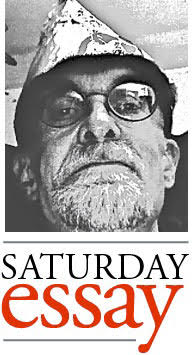Such Magnificent Ghosts
 Back in January, Don Ness emailed me something like, “Hey, Anna. I’m hosting a party at the NorShor Theatre on March 3 and I’d like you to tell some stories. Would you do a reading?”
Back in January, Don Ness emailed me something like, “Hey, Anna. I’m hosting a party at the NorShor Theatre on March 3 and I’d like you to tell some stories. Would you do a reading?”
Ness, as you probably know, is the former mayor of Duluth and, as you might not know, a positive master of understatement. I figured he was inviting me to perform at a little reading party. You know, 50 people or so in the NorShor’s mezzanine. And then a friend of mine messaged me a poster for a Low concert in the NorShor’s 632-seat theater. I zoomed in to see the date, to see if I could go, and saw MY NAME ON THE BOTTOM OF THE POSTER — and I, embarrassed and panic stricken that my name had somehow gotten on the bottom of this poster, looked at the date, and was like, “And I can’t even do it then, because I’m gonna be at Don Ness’s party!” Took me like ten seconds to figure out this was the thing Don had invited me to. Lord.
The truth is, when Don asked, I responded that it meant a lot for me to be a part of such an event — and I knew he knew exactly what I meant by that. I was honored to do it. The following is a transcript of what I read to that 632-person crowd.


















